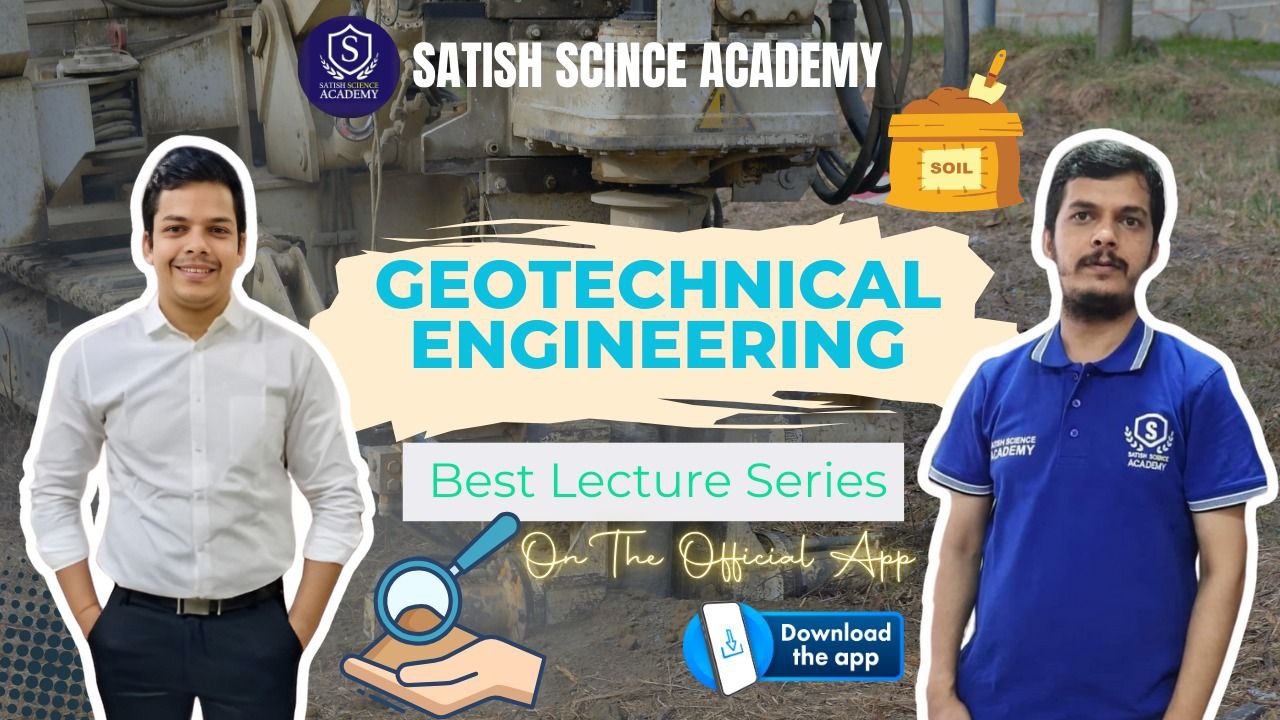Geotechnical Engineering

₹2,800
Choose Currency:
Description
🌍 Uncover the Secrets Beneath Your Feet!
Course Title: Geotechnical Engineering
Duration: 36 Hours
Level: Undergraduate
Universities: MSBTE, AKTU, BATU, SPPU, GTU, DTU, UTU
🔑 Why This Course?
Step into the world where soil meets science! This Geotechnical Engineering course is your ticket to mastering the principles that build the world around us. From soil mechanics to slope stability, gain the expertise to handle real-world civil engineering challenges with confidence.
🌟 Course Highlights:
🔥 Real-world applications of soil mechanics and foundation engineering.
🔬 Master key concepts like permeability, compaction, and stress distribution.
🛠️ Hands-on experience with essential tests (Proctor, Shear) following IS standards.
🏗️ Practical solutions for earth pressure and slope stability problems.
📚 What You'll Learn:
🏞️ Unit I: Introduction and Index Properties (06 Hours)
-
Explore the fascinating types of soil structures and major Indian deposits.
-
Learn field identification and the art of soil exploration.
-
Grasp weight-volume relationships and soil classification systems.
💧 Unit II: Permeability and Seepage (06 Hours)
-
Why does water flow through soil? Discover Darcy's Law.
-
Conduct lab and field permeability tests with IS standards.
-
Decode seepage, flow nets, and the quicksand phenomenon.
🏗️ Unit III: Compaction and Stress Distribution (06 Hours)
-
Compaction vs. Consolidation — What sets them apart?
-
Perform Proctor tests and learn field compaction techniques.
-
Understand how stress distributes in soil with pressure bulbs.
⚙️ Unit IV: Shear Strength of Soil (06 Hours)
-
Discover the superhero property of soil — shear strength!
-
Learn Mohr's Circle and the Mohr-Coulomb failure theory.
-
Master shear tests and see how they reveal soil behavior.
🧱 Unit V: Earth Pressure (06 Hours)
-
How does soil push back? Find out with Rankine's and Coulomb's theories.
-
Analyze earth pressure in retaining walls and submerged backfill.
-
Use graphical methods to determine earth pressure accurately.
⛰️ Unit VI: Stability of Slopes (06 Hours)
-
Why do slopes fail? Learn how to prevent landslides.
-
Explore Taylor's stability number and Bishop's method.
-
Discover the secrets of slope stability with practical techniques.
🚀 Why Enroll?
-
Gain hands-on, practical insights for the real world.
-
Learn with the latest IS standards for industry relevance.
-
Master field and lab tests crucial for your civil engineering journey.
📢 Enroll Today! Build a rock-solid foundation for your Civil Engineering career!
Loading...